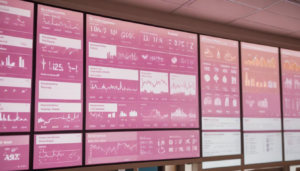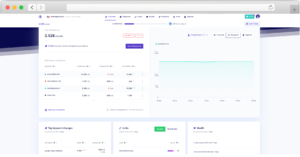Harnessing AI Tools for Digital Marketing Success
Introduction: How AI Tools Are Revolutionizing Digital Marketing
Artificial Intelligence (AI) is transforming the digital marketing landscape. From optimizing campaigns to analyzing data more effectively, AI tools for digital marketing offer marketers the ability to streamline tasks, improve accuracy, and enhance the customer experience. For those unfamiliar with this fast-evolving technology, understanding its role can feel overwhelming. But don’t worry—this blog will provide a comprehensive guide to understanding how AI tools can be used effectively to boost marketing efforts, improve decision-making, and drive ROI.
The Benefits of AI Tools in Digital Marketing

AI tools for digital marketing deliver a variety of benefits that are increasingly making them indispensable for marketers.
-
Enhanced Personalization: AI analyzes user data to create personalized marketing messages. This leads to better customer engagement and higher conversion rates.
-
Improved Campaign Efficiency: AI can automate repetitive tasks such as email marketing and social media posts, freeing up time for marketers to focus on strategy.
-
Predictive Analytics: AI-powered predictive analytics tools help forecast future trends by analyzing current and past data, allowing marketers to make informed decisions.
-
Increased ROI: By improving targeting accuracy and personalizing customer experiences, AI tools can dramatically increase the ROI of marketing campaigns.
Key AI Tools for Digital Marketing Success
There are several AI tools that every digital marketer should consider integrating into their marketing stack. Let’s dive into some of the most popular ones and their uses:
1. Chatbots and Customer Service AI

Chatbots powered by AI can handle customer inquiries in real-time, providing quick responses without the need for human intervention. Many businesses are using AI-driven chatbots to improve customer satisfaction and reduce service costs.
-
Example: Tools like Tidio and Drift use AI to engage with website visitors and help guide them through the sales funnel.
2. Content Generation Tools

AI content generation tools like Copy.ai and Jasper help marketers create written content at scale. These tools use natural language processing to generate blog posts, social media updates, and even ad copy. However, it’s important to still review and optimize AI-generated content for SEO and audience engagement.
3. Predictive Analytics Tools

Predictive analytics tools, such as HubSpot and Google Analytics, can help predict future customer behaviors and trends by analyzing historical data. This can help marketers refine their strategies and target customers more effectively.
4. AI-Driven SEO Tools

AI SEO tools such as SurferSEO and MarketMuse help marketers optimize their websites for search engines. These tools analyze search patterns, keywords, and content performance to provide actionable insights that can improve rankings and increase organic traffic.
Actionable Tips: How to Incorporate AI Tools into Your Strategy
1. Start Small and Scale
Begin by integrating one or two AI tools into your current strategy. Chatbots, for example, are easy to implement and provide immediate value. Over time, you can explore more sophisticated AI tools like predictive analytics or content generation software.
2. Focus on Data-Driven Decision Making
AI tools thrive on data. The more information you feed them, the better they perform. Ensure you’re collecting and organizing customer data efficiently to get the most out of AI’s capabilities. AI-powered CRM systems like Salesforce can help centralize this data.
3. Monitor Results and Adjust
It’s essential to continuously monitor the performance of AI-driven campaigns. Use the analytics provided by your AI tools to make necessary adjustments and optimize performance. Remember, AI tools should complement your strategy—not replace human decision-making.
Conclusion: AI Tools as the Future of Digital Marketing
AI tools for digital marketing offer enormous potential for improving marketing efficiency, enhancing personalization, and driving revenue growth. By understanding and adopting these tools, businesses can stay ahead of the competition and provide better experiences to their customers. Start small, leverage data, and consistently monitor your results to maximize the benefits of AI in your digital marketing strategy.
Learn more about how AI is transforming industries in this comprehensive guide by Forbes.





